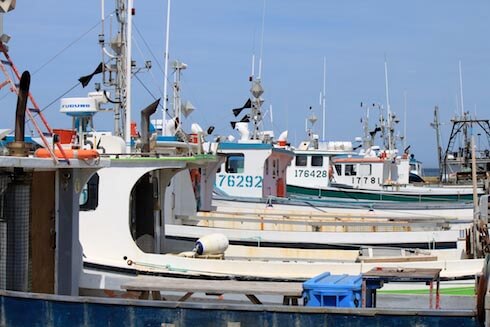The US government recently granted $180,000 to the New England Aquarium to design safer fishing gear for whales – namely ropes that are less strong – which could reduce the number of entanglement-related mortalities.
Every year we hear about whales that die tangled up in fishing gear or that are saved in extremis after entanglement such as the recent case of right whale #4057 in the Bay of Fundy. According to the International Whaling Commission, some 308,000 whales and dolphins die every year after getting snared in fishing gear. Entanglement can cause drowning, lacerations, infections, or may prevent the animal from feeding. In some cases, the problem is so serious that it threatens entire populations of marine mammals such as the vaquita and the North Atlantic right whale. According to scientists, 83% of North Atlantic right whales, an endangered species, show bycatch-induced markings such as deep scars or abnormally arched backs.
Over the past 20 years, fishing gear has become stronger. A study published in the scientific journal Conservation Biology in December 2015 suggests that the widespread adoption of ropes with a breaking strength equal to or less than 7.56 kN (1,700 lbf) could reduce the number fatal entanglements of large cetaceans by at least 72%, while providing sufficient strength for most fishing operations.
Researchers from the New England Aquarium are therefore trying to develop rope robust enough to be used by fishermen in deep waters, but not strong enough to prevent the whales to break free if they are trapped. They plan to develop two or three prototypes over the next 18 months.
Sources:
The push is on to develop fishing ropes that won’t kill whales
An Unlikely Alliance Forms to Save Whales From Deadly Entanglements
Simple solution could save whales from fishing nets
Effects of fishing rope strength on the severity of large whale entanglements
To learn more:
On Whales Online:





